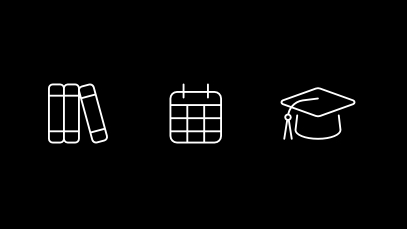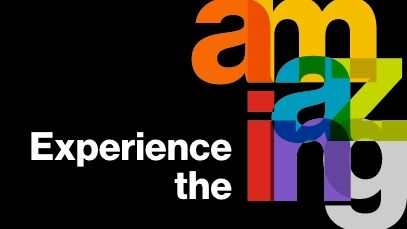Luka Borsic
Instructor
RIT Croatia
Select Scholarship
Full Length Book
Borsic, Luka and Ivana Skuhala Karasman. Philosophy as Teamwork. Zagreb, Croatia: Institute Of Philosophy, 2017. Print.
Borsic, Luka and Ivana Skuhala Karasman. Our Women [Croatian]. Zagreb, Croatia: Naklada Jurcic, 2016. Print.
Borsic, Luka and Ivana Skuhala Karasman. Exhibition on the Occasion of the 485th Anniversary of the Birth of Frane Petrić [Croatian]. Zagreb, Croatia: National and University Library in Zagreb, Institute of Philosophy, 2014. Print.
Book Chapter
Borsic, Luka and Ivana Skuhala Karasman. "Krieg, Religion und Frauen auf der Insel Utopia [German]." Politische Utopien der Neuzeit. Thomas Morus, Tommaso Campanella, Francis Bacon. Ed. Otfried Hí¶ffe. Berlin, Boston, Germany, USA: Walter de Gruyter, 2016. 93-107. Print.
Borsic, Luka. "Post-Renaissance distance toward tradition [Croatian]." Does Philosophy Need Its History? [Croatian]. Ed. Ivana Skuhala Karsman and Petar Segedin. Zagreb, Croatia: Institute of Philosophy, 2016. 159-173. Print.
Borsic, Luka and Ivana Skuhala Karasman. "Patrizi and His Women [English]." Francesco Patrizi: Philosopher of the Renaissance. Ed. ThomaÅ¡ Nejeschleba and Paul Richard Blum. Olomouc, Czech Republic: Univerzita Palackého v Olomouci, 2014. 162-184. Print.
Journal Paper
Borsic, Luka and Ivana Skuhala Karasman. "Herman's Translation of Sahl Ibn Bishr's Astrological Treatise [Croatian]." Kroatologija. 7 (2016): 1-13. Print.
Borsic, Luka and Ivana Skuhala Karasman. "Collaboration of Academician Žarko Dadić with the Institute of Philosophy [Croatian]." Historijski zbornik. 69 (2016): 491-502. Print.
Borsic, Luka and Ivana Skuhala Karasman. "Federik Grisogono, the iatromathematician [English]." Croatian Studies Review 12. (2016): 21-43. Print.
Invited Keynote/Presentation
Borsic, Luka and Danijel Dzino. "Liburnica / Liburna: Borrowing technology [English]." Imperialism and Identities at the Edge of the Roman World 3. Petnica Science Center. Petnica, Serbia. 24 Sep. 2016. Conference Presentation.
Borsic, Luka and Ivana Skuhala Karasman. "Helene von Druskowitz and the Position of Women in the Austro-Hungarian Monarchy [English]." I. Autumn School - History of Women Philosophers in Antiquity and í‰milie Du Chí¢telet on Space and Time. University of Paderborn. Paderborn, Germany. 13 Oct. 2016. Keynote Speech.
Borsic, Luka and Ivana Skuhala Karasman. "Philosophy of Elza KuÄera [Croatian]." Women philoosphers in Croatia [Croatian]. Institute of Philosophy. Zagreb, Croatia. 8 Dec. 2016. Conference Presentation.
Shows/Exhibits/Installations
Druskowitz, Helene von. Die Ausstellung í¼ber Helene von Druskowitz [German-Croatian]. By Luka Borsic and Ivana Skuhala Karasman. 1 Nov. 2016. í–sterreichisches Kulturforum, Zagreb. Exhibit.
Patrizi, Francesco. Exhibition on the Occasion of the 485th Anniversary of the Birth of Francesco Patrizi [Croatian]. By Luka Borsic and Ivana Skuhala Karasman. Apr. 2014. National and University Library, Zagreb. Exhibit.
National/International Competition Award Winner
Borsic, Luka and Ivana Skuhala Karasman. Institute of Philosophy. Award for excellence in scholarship. Zagreb, Croatia, 2016.
Journal Editor
Borsic, Luka, Tvrtko Jolic, and Petar Segedin, ed. Philosophy of Politics - Heritage and Perspectives [Croatian]. Zagreb: Institute of Philosophy, 2016. Print.
Borsic, Luka and Ivana Skuhala Karsman, ed. Physics and Philosophy [English]. Zagreb: Institute of Philosophy, 2015. Print.
Borsic, Luka, Tvrtko Jolic, and Petar Segedin, ed. Philosophy and the Croatian language. [Croatian]. Zagreb: Institute of Philosophy, 2014. Print.
Currently Teaching
PHIL-101
Introduction to Philosophy
3 Credits
Philosophy is about the rigorous discussion of big questions, and sometimes small precise questions, that do not have obvious answers. This class is an introduction to philosophical thinking where we learn how to think and talk critically about some of these challenging questions. Such as: Is there a single truth or is truth relative to different people and perspectives? Do we have free will and, if so, how? Do we ever really know anything? What gives life meaning? Is morality objective or subjective, discovered or created? We’ll use historical and contemporary sources to clarify questions like these, to understand the stakes, to discuss possible responses, and to arrive at a more coherent, more philosophically informed, set of answers.
PHIL-103
Critical Thinking
3 Credits
The purpose of this course is to improve everyday reasoning skills. Critical thinking means evaluating the reasons for our actions and beliefs. Ideally, we think our actions are rational, not arbitrary. But one does not have to look far to discover disagreement and apparent irrationality. What accounts for this? This course investigates how to argue effectively, how to evaluate evidence and reasons, and how to marshal good evidence and reasons in order to arrive at reliable knowledge and justified action. It covers common mistakes that people make in causal, statistical, moral, and everyday reasoning, and it teaches how and when it pays to be skeptical, reflective, and critical.
PHIL-449
Topics in Philosophy
3 Credits
A critical examination of issues in some area of philosophy not covered in other philosophy courses.







